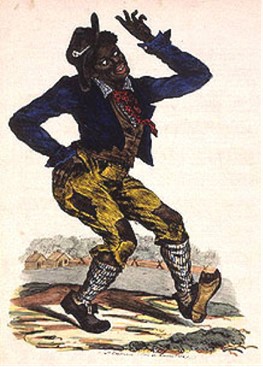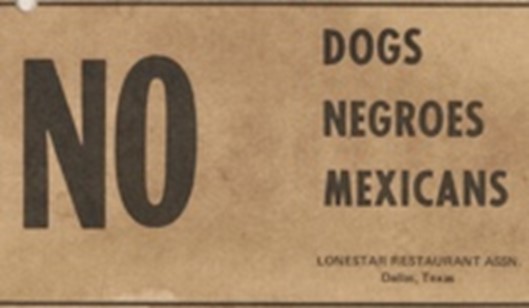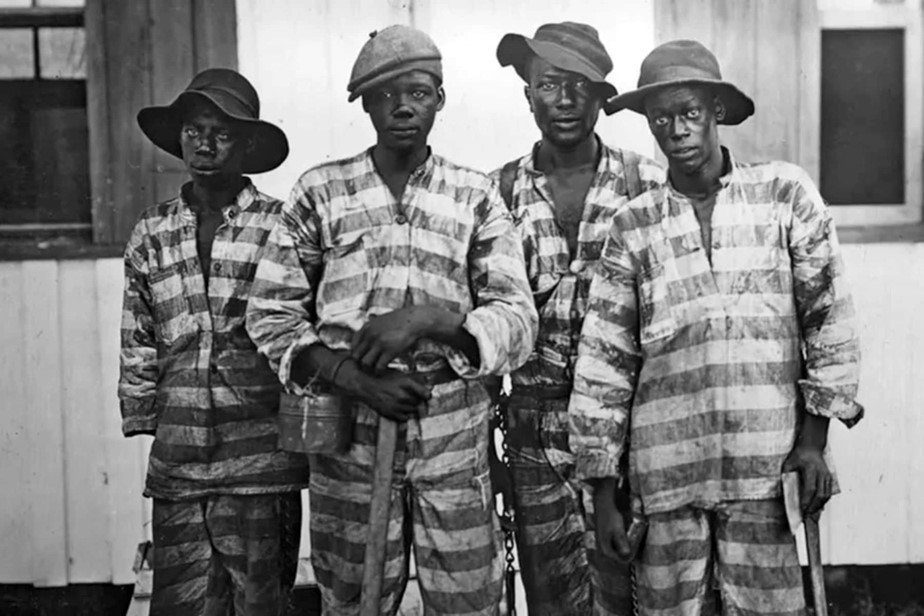
Introduction to Lesson 12
It is essential to address the social conditions under which certain musical expressions and expansions arose. In the shadow of Plessy vs. Ferguson ![]() SIDE NOTEPlessy v. Ferguson was a landmark 1896 U.S. Supreme Court decision that upheld the constitutionality of racial segregation under the "separate but equal" doctrine. The case stemmed from an 1892 incident in which African American train passenger Homer Plessy refused to sit in a car for Black people. (1896) and an utterly failed attempt at Reconstruction
SIDE NOTEPlessy v. Ferguson was a landmark 1896 U.S. Supreme Court decision that upheld the constitutionality of racial segregation under the "separate but equal" doctrine. The case stemmed from an 1892 incident in which African American train passenger Homer Plessy refused to sit in a car for Black people. (1896) and an utterly failed attempt at Reconstruction ![]() SIDE NOTEThe Reconstruction era, the period in American history that lasted from 1865 to 1877 following the American Civil War (1861-65), marked a significant chapter in the history of civil rights in the United States. Reconstruction ended the remnants of Confederate secession and abolished slavery, making the newly freed slaves citizens with civil rights ostensibly guaranteed by three new constitutional amendments. Reconstruction also refers to the attempt to transform the eleven Southern, former Confederate states, as directed by Congress, and the role of the Union states in that transformation. , America was in tumultuous social and economic divide. A new systemic structure aimed at the continued suppression of African American society was well underway during this time. "Jim Crow"
SIDE NOTEThe Reconstruction era, the period in American history that lasted from 1865 to 1877 following the American Civil War (1861-65), marked a significant chapter in the history of civil rights in the United States. Reconstruction ended the remnants of Confederate secession and abolished slavery, making the newly freed slaves citizens with civil rights ostensibly guaranteed by three new constitutional amendments. Reconstruction also refers to the attempt to transform the eleven Southern, former Confederate states, as directed by Congress, and the role of the Union states in that transformation. , America was in tumultuous social and economic divide. A new systemic structure aimed at the continued suppression of African American society was well underway during this time. "Jim Crow" ![]() SIDE NOTEJim Crow Laws were state and local laws that enforced racial segregation in the Southern United States. These laws were enacted in the late 19th and early 20th centuries by white Southern Democrat-dominated state legislatures to disenfranchise and remove political and economic gains made by black people during the Reconstruction period. Jim Crow laws were enforced until 1965. laws deemed races separate but certainly not equal. The name Jim Crow refers to a minstrel character created by Thomas Dartmouth Rice, a White man born in New York City in 1808 who devoted himself to the theater in his twenties.
SIDE NOTEJim Crow Laws were state and local laws that enforced racial segregation in the Southern United States. These laws were enacted in the late 19th and early 20th centuries by white Southern Democrat-dominated state legislatures to disenfranchise and remove political and economic gains made by black people during the Reconstruction period. Jim Crow laws were enforced until 1965. laws deemed races separate but certainly not equal. The name Jim Crow refers to a minstrel character created by Thomas Dartmouth Rice, a White man born in New York City in 1808 who devoted himself to the theater in his twenties.
In the early 1830s, he began performing the act that would make him famous: he painted his face black and performed a song and dance inspired by a slave he saw. The unrelenting mockery of the Black experience in America that the Jim Crow character represented solidified a systematic strategy of continued servitude and even a greater sense of inferiority. Under such laws, Southern states imposed a system of peonage ![]() SIDE NOTEPeonage, also called debt slavery or debt servitude, is a system where an employer compels a worker to pay off a debt with work. Legally, peonage was outlawed by Congress in 1867. However, after Reconstruction, many Southern black men were swept into peonage though different methods, and the system was not completely eradicated until the 1940s. Slavery v. Peonage. Black men became targets for white supremacists to impose criminal charges with unbelievably harsh and extreme sentences. In the process of regaining wealth lost during and after the Civil War, many White Southerners forced the newly freed slaves into states nearly as demoralizing and damaging as slavery, and thus plantation work songs became chain-gang or prison songs. Just as many work songs are neither wholly sacred nor wholly secular, the same is true of chain-gang and prison songs. Listen to the song in the video below. The singers are clearly making a petition to God, though the Divine is sometimes referred to as "Captain." The song includes lyrics describing a variety of conditions or concerns but always conclude with "Good God, Almighty."
SIDE NOTEPeonage, also called debt slavery or debt servitude, is a system where an employer compels a worker to pay off a debt with work. Legally, peonage was outlawed by Congress in 1867. However, after Reconstruction, many Southern black men were swept into peonage though different methods, and the system was not completely eradicated until the 1940s. Slavery v. Peonage. Black men became targets for white supremacists to impose criminal charges with unbelievably harsh and extreme sentences. In the process of regaining wealth lost during and after the Civil War, many White Southerners forced the newly freed slaves into states nearly as demoralizing and damaging as slavery, and thus plantation work songs became chain-gang or prison songs. Just as many work songs are neither wholly sacred nor wholly secular, the same is true of chain-gang and prison songs. Listen to the song in the video below. The singers are clearly making a petition to God, though the Divine is sometimes referred to as "Captain." The song includes lyrics describing a variety of conditions or concerns but always conclude with "Good God, Almighty."
Black men became targets for white supremacists to impose criminal charges with unbelievably harsh and extreme sentences. In the process of regaining wealth lost during and after the Civil War, many White Southerners forced the newly freed slaves into states nearly as demoralizing and damaging as slavery, and thus plantation work songs became chain-gang or prison songs. Just as many work songs are neither wholly sacred nor wholly secular, the same is true of chain-gang and prison songs. Listen to the song in the video below. The singers are clearly making a petition to God, though the Divine is sometimes referred to as "Captain." The song includes lyrics describing a variety of conditions or concerns but always conclude with "Good God, Almighty."
The Lightning Washington and prisoners: Good God Almighty (1933) was video recorded by John A. and Alan Lomax at Darrington State Prison Farm, Sandy Point, Texas, December 1933:

Lightning Washington and prisoners: Good God Almighty (1933) [ 00:00-00:00 ]
A fascinating period in history emerged from these quite literal chains, in which African American music and expression expanded to include cross-genre elements or tropes of other genres. TropesA musical addition to or a substitution for an item of plain chant. A trope may or may not have words, and is often an introduction to a chant. are identifiable elements from a specific genre used in another. When you compare the specific melodic, harmonic, and rhythmic features shared by the spiritual and the blues, it is evident that the sacred merged with the secular, both stemming from the vicissitudes of the slave experience in America. Spirituals provided strength and solace to the enslaved Africans who composed and sang them and they later inspired the sound of one of the most significant genres of music in the United States and even the world in the twentieth century, gospel music.
Leave It There
If the world from you withhold of its silver and its gold,
And you have to get along with meager fare,
Just remember, in His Word, how He feeds the little bird,
Take your burden to the Lord and leave it there.
Leave it there, leave it there,
Take your burden to the Lord and leave it there.
If you trust and never doubt,
He will surely bring you out,
Take your burden to the Lord and leave it there.
Stand By Me
When the storms of life are raging
Stand by me
When the storms of life are raging
Stand by me
When the world is tossing me
Like a ship out on the sea
Thou who rulest wind and water
Stand by me








